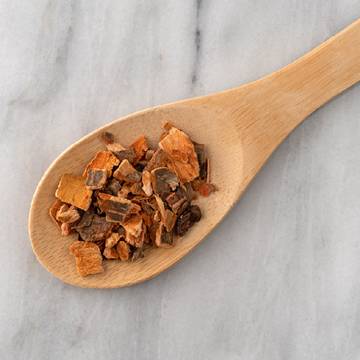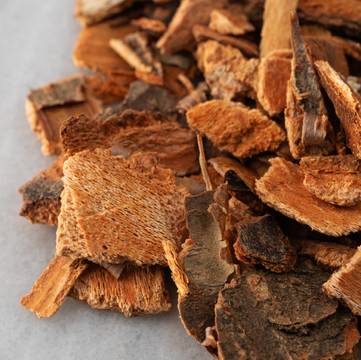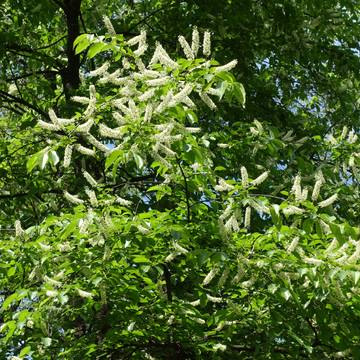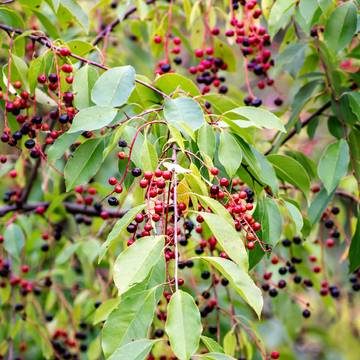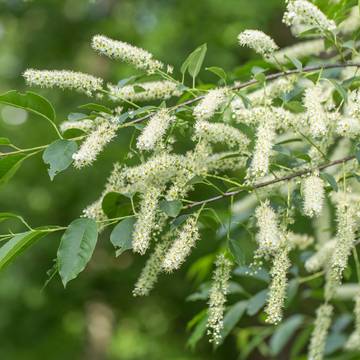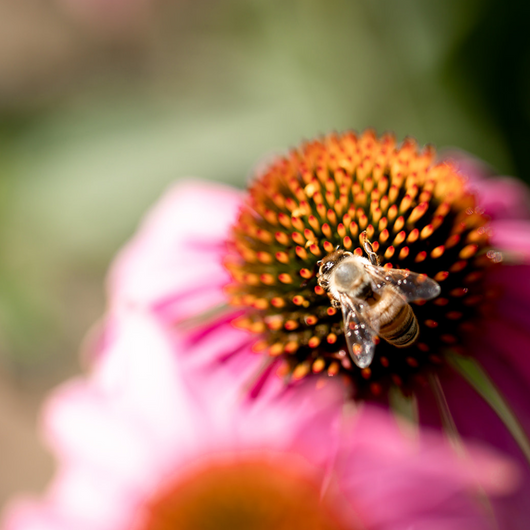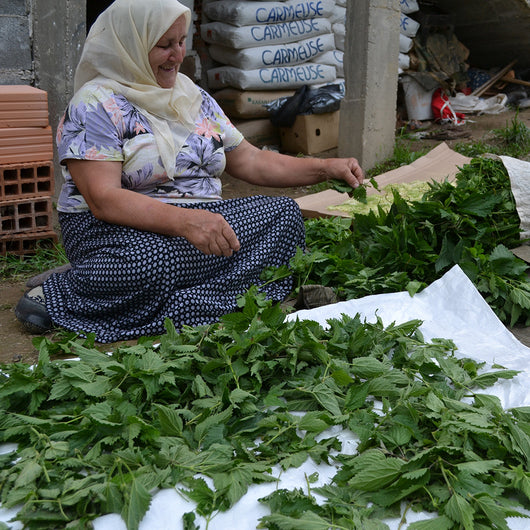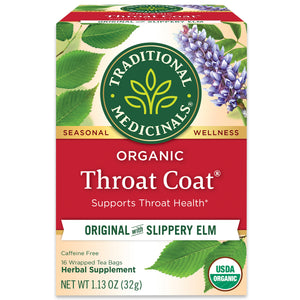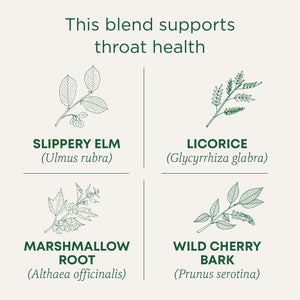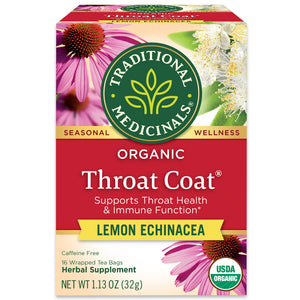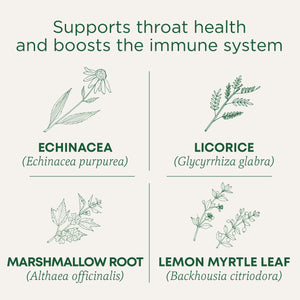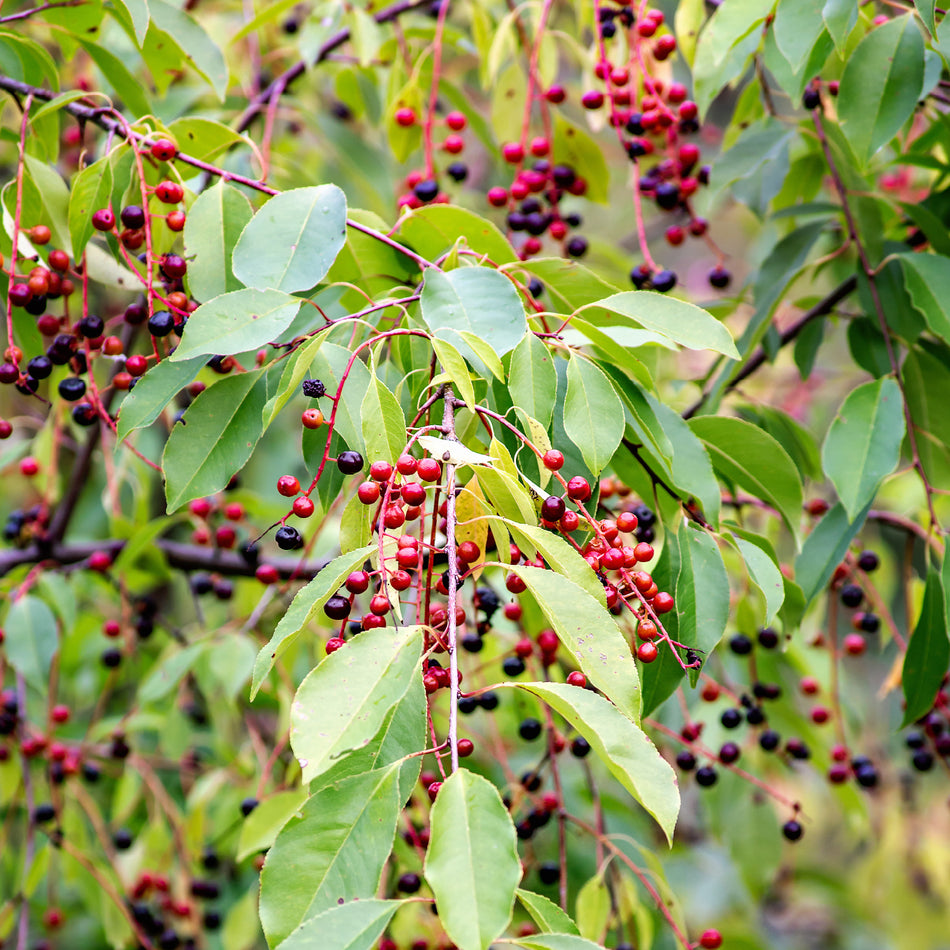
Wild Cherry
Prunus serotinaWild cherry is a powerful multi-use herb that’s especially good for soothing irritated tissues and coughs, and clearing congestion.*
Wild black cherry is also referred to as capolcuahuitl in the Nahuatl language.
What are the benefits of Wild Cherry?
Black cherry trees are native to North America and have been used for centuries as a traditional herbal remedy. Wild cherry is most commonly used to soothe coughs and is commonly found in herbal syrups and lozenges. It’s also prepared as a tea and tincture in herbalism.
Wild cherry bark is able to promote respiratory health, soothe the throat, and reduce tissue inflammation which then makes it easier to breathe.* It’s also a mild sedative and nervine, which helps to ease stress and promote restful sleep.*
Folklore & Historical Use of Wild Cherry
Wild cherry is also very important amongst Indigenous communities. The Iroquois believe that wild cherry trees are inhabited by powerful spirits and used the bark in spiritual ceremonies and rituals. According to "The Iroquois Book of Rites" by Horatio Hale, the Iroquois consider the tree a symbol of strength and power and believe the bark helps to ward off evil spirits.
This bark is also incorporated into decorative objects and clothing. The Cherokee use the bark to create a red dye for baskets and other woven items, according to "Native American Medicinal Plants: An Ethnobotanical Dictionary" by Daniel E. Moerman. The Ojibwe also use the bark to decorate clothing, weaving it into intricate patterns.
Botany, Species, Habitat
This medicinal tree can reach heights of up to 100 feet and is most commonly found in the eastern United States. They grow best in well-drained soil and prefer full sun but can also tolerate partial shade. They require moderate water and do well in a wide range of climates, including cold winters and hot summers.
It’s best to harvest the bark in early spring, just before flowers begin to bud. It’s important to source from suppliers who know how to cut the trunk and properly peel the outer bark, and to only take in small amounts to avoid damaging or killing the tree. We source only from sustainable sources who steward the land and obtain proper permits and permissions or grow their own wild cherry trees.
When To Use Wild Cherry
Anytime to soothe irritated throat tissues.
Anytime to soothe irritated throat tissues.
When seasonal congestion has got you down.
The Business of Sustainable Plants
Our business is rooted in plants, and for us, it’s a business imperative that we care for the ecosystems where these plants live and thrive. We believe that everything is interconnected, which means supporting ecosystems and the farmers and collectors who harvest and gather our herbs. Finding opportunities to reduce or eliminate emissions at the source, we support organic and regenerative farming practices as well as voluntary certifications like Organic and FairWild. These ensure the absence of pesticides, herbicides, as well as the ongoing sustainability of wild collection, and the health and livelihoods of the collectors who forage. Josef Brinckmann, Traditional Medicinals’ Research Fellow, Medicinal Plants and Botanical Supply, asserts, “Everyone has a role to play in preserving biological diversity. One way of doing that is by equitably supporting the local people to serve as stewards of the land.”
It Starts with Organic
We choose to source organic because we believe in the positive impacts it has on environmental sustainability, biodiversity, and overall ecosystem health. Organic helps us increase transparency while prioritizing consumer well-being and farmer success, which is key to producing the high-quality herbs we source. In 2021, we procured 2.73 million pounds of certified organic herbs, over 99.7% of our total botanical herbs purchased. Volumes were down slightly from FY20 due to timing of inventories received.
The impact from organic farming creates a vital ecosystem through improved soil health, water quality, pollinator habitats, and biodiversity. Organic farms also have increased carbon sequestration potential through long-term carbon storage in the soil, helping to mitigate climate change.
One of the benefits of organic that we most value is farmer health. We care deeply about the people who produce our herbs, ensuring that they are not exposed to synthetic chemicals found in conventional agriculture.
Fair Trade
We believe that everyone deserves a fair wage for hard work. That’s one of the reasons why we’re committed to fair trade. Traditional Medicinals® is a registered Fair Trade “brand holder”, “licensee” and “manufacturer,” and our products are certified by Fair Trade USA, an independent third-party certifier. We were an early adopter of Fair Trade, having launched our first fair trade tea product in 1998, just one year after Fairtrade International (FLO) was established. We continue to work closely with our network of producers to help them to implement fair trade standards and get certified.
Throat Coat® Lemon Echinacea Tea
Additional Information
Legal Disclaimer
The information and other content in this article are designed to provide a general overview of the botany, cultural history, and traditional uses of this herb. It is not intended and should not be construed as health advice. Every person is unique and you should consult with your health care provider before using any herbal product or supplement.

